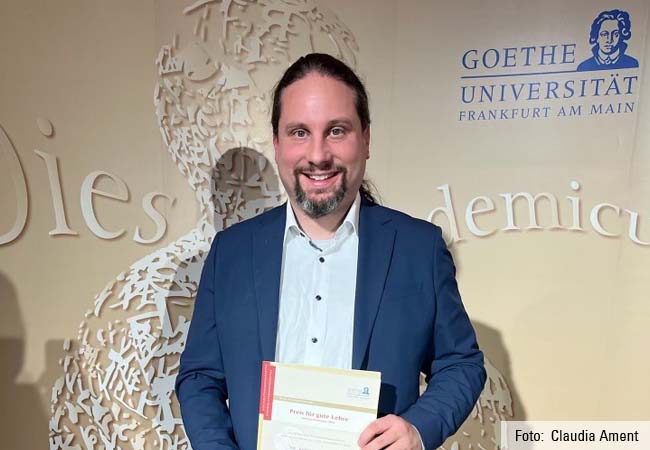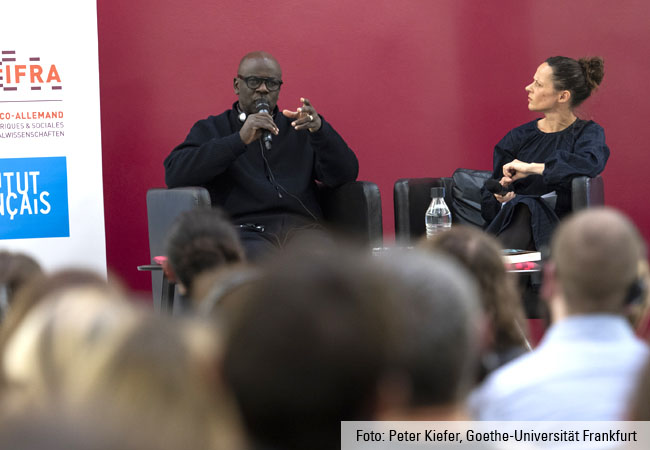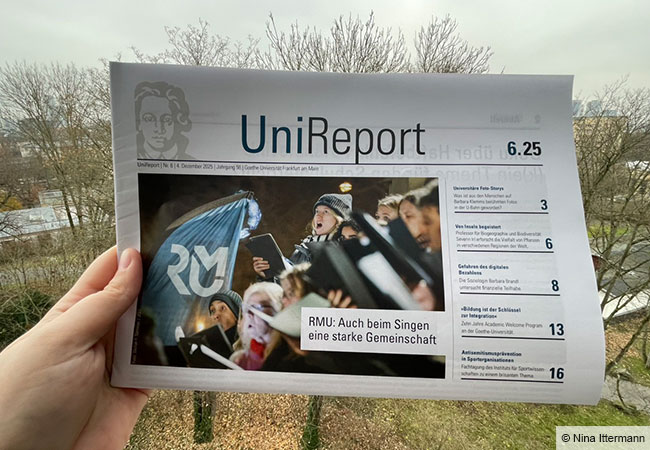
There are many different factors that affect one’s personal study environment. The general framework conditions surrounding a degree – whether at the university itself or beyond campus – have an impact on students’ satisfaction with their studies, and thus also on whether they successfully complete them or not. Among the external factors, accommodation is becoming increasingly important, especially at a time when the housing market in university cities continues to tighten. A look at the latest figures reveals how varied students’ living circumstances are. At 34.3 percent, the largest group of Goethe University students live with their parents/relatives, 23.2 percent live in shared apartments, 20.7 percent live alone, 15.8 percent live with their partner, 3.9 percent with their partner and child(ren) and 0.7 percent with their child(ren). Incidentally, the share of Goethe University students living with their families exceeds the German average (30 percent in 2021; student survey 2023).
The results of the third university-wide student survey indicate that family background has an effect on students’ housing situation. First-generation students (also called “educational climbers”) are more likely to live with their parents or relatives (36.2 percent) than students whose parents also went to university (31.4 percent). Conversely, 26 percent of students from families with an academic background live in shared apartments. In comparison, only 20.7 percent of educational climbers choose such living arrangements.
The home situation also affects studies. Whereas 85 percent of students living with relatives or in shared accommodation indicated that they have a quiet place where they can study, only 54 percent of students living with their children said they had the same, as did 59 percent of those living with their partner and child(ren).
“The data suggest that having a quiet place for study correlates positively with general satisfaction with the course as well as individual success,” says Antonia Winkler of Goethe University’s Global Affairs Study and Teaching (Studium Lehre Internationales, SLI) department, who is in charge of running the university-wide surveys. Here, too, differences exist between first-generation students and those whose families have an academic background. Among the educational climbers, 82.4 percent agree (broadly or fully) with the statement: “I have a quiet place to study at home”. Among students from academic families, this figure comes to 88.4 percent.
Another aspect of accommodation is distance to the university – which has an influence on the design of the degree course. Students commute an average of 47 minutes to university, but the time taken varies widely and can extend up to 120 minutes.
Of the students surveyed, 33.7 percent indicated that they felt severely burdened either by the distance from their home to the university or by the time taken to commute. Here, too, there is a difference between first-generation students and the children of graduates, Winkler explains: “First-generation students feel burdened significantly more often by the distance between university and their homes or by commuting (37.9 percent find this to be a severe burden) than students from academic families (30.7 percent find this to be a severe burden).”
What’s more, commuting may also be necessary within the university: 17.8 percent of students surveyed said that in the 2022/23 winter semester, they regularly had to travel to another campus to attend courses. On average this happened twice a week.
More information on this and other topics related to study conditions:
Report on the third university-wide student survey and the brochure summarizing key results (in German) →













